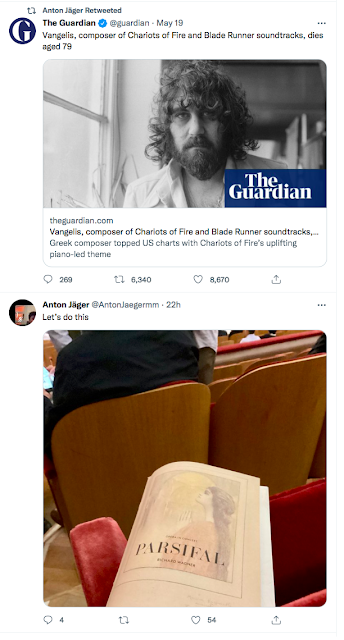Why the city’s clash of cultures between progressive Brooklyn and transgressive Manhattan marks a new era in American politics.
In American cultural and intellectual life, New York City sets the tone. As the main hub for the country’s media and frequent originator of trends that percolate through US society, what’s “in” with the New York scene today is often central to American culture tomorrow. And politics, too – as US conservatives never tire of noting – is often downstream of culture.
But New York City’s intellectual landscape is increasingly split between two warring scenes, divided by geography, aesthetics and politics. Which of these prevails could affect whether America shifts right or remains where it is.
In Brooklyn, the borough associated with the “hipster” revolution from the late 2000s, writers energised by the Bernie Sanders campaigns in 2016 and 2020 retain their faith in left-wing politics through new “small” magazines. But on the island of Manhattan, a self-consciously transgressive artistic and literary scene is brewing downtown. In podcasts, plays and literary journals, a different sensibility is being elaborated. Scornful of the “woke” sanctimony of Brooklyn-based media, some flirt with alternative ideologies, while others claim not to be interested in politics at all.
[see also: A farewell to Enid’s, Greenpoint’s iconic “hipster” hangout]
Who wins in New York’s clash of cultures is high-stakes for the future of American political culture....
The first time I walked in Enid's all I thought was that it felt like the midwest, slackers from suburban Illinois and their junkie ex-cheerleader girlfriends.
"And politics, too – as US conservatives never tire of noting – is often downstream of culture."
Serendipity/timing...
That culture might be powerless to affect the movement of history was a perception Viennese society held in abeyance for half a century, by endorsing every avant-garde that appeared in its arts and literature.
The author is an American, a nationalist hipster conservative.
Even the pointless endless squabbling of the American culture war—which I have called an engine of unfreedom—is also a machine that originates new doctrines quickly copied from Brazil to Bessarabia, that generates entirely new lifestyles, physical-medical-cultural modes of life hitherto unknown.
To be present at the creation is why one lives in America and in New York specifically, why one bears the thousand tiny indignities of life here, why one consents to being broiled in summer and frozen in winter, ripped off for everything in all seasons, why one submits to the terrible restlessness and the deleterious effect on the body of the climate, the cuisine, the lifestyle—why it’s necessary to endure the vulgarity that pervades the city at every level, up to the highest levels of supposed refinement and intellectualism....
A postscript: I recently published a piece for the New Statesman gathering some observations on the political-cultural landscape in New York City. Just a fun little piece for the Brits, something to give them a very rough sense of developments here, because they love that sort of thing. I figured it would probably get lukewarm pick-up this side of the Atlantic because I didn’t come out swinging against any of the people I mentioned.
Wrong! People outside New York City were irritated by what they perceived as an exaggeration on my part of the influence of a handful of figures in New York City, none of whom are household names. And after another essay was published earlier in the week, people in New York City were fed up with articles about cultural developments in lower Manhattan
He links to Lorentzen's response. They're part of the same stupid scene.
"In American cultural and intellectual life, New York City sets the tone....Who wins in New York’s clash of cultures is high-stakes for the future of American political culture."
"To be present at the creation is why one lives in America and in New York specifically."
I fucking had to laugh. A Californian fantasy of the center of the universe, 30[?] years too late.
"—which I have called..." From the link:
Michel Foucault, ever more out of favour on the left, would have been right to see the American culture war itself as an engine of unfreedom, a means of disciplining thought and action on both sides.
Leiter links to the wife of a recently fired Princeton professor, Joshua Katz.
I decided to apply for early admission to Princeton after sitting in on Professor Joshua Katz’s seminar in April of 2012.
...In November 2018, Joshua bought my father a martini and asked for permission to marry me. In March 2019, we found our dream home in Princeton. That December, Joshua proposed.
Plato argued that we should, in all areas of life, defer to experts. If you wish to raise good horses, employ an expert horse-trainer. If you wish to cure a sick man, take him to an expert doctor. And if you wish to live in a harmonious city, enthrone an expert statesman.One would be hard-pressed to find a group of people today who take greater pride or place more stock in expertise than the faculty members at my alma mater, Princeton University. “Trust the experts”: a constant refrain, plastered across their yard signs and social media accounts. In theory, it’s easy to imagine the little town of Princeton, New Jersey, as a modified, modern-day Kallipolis.
Peter Beinart’s assertion last week, in “The Racial and Religious Paranoia of Trump’s Warsaw Speech,” that “the West is a racial and religious term” has raised more than a few eyebrows, primarily for its implication that to champion Western Civilization is to participate in bigotry. Jonah Goldberg’s article in National Review took Beinart to task on this point, offering a rousing defense of Western Civilization. But not yet fully debunked is Beinart’s initial premise: that is, that “the West” is code for white, Christian culture—a culture that belongs to white Christians, and to them alone."Western Civilization" celebrates white marble statues; the Greeks themselves were all in for polychrome vulgarity. And "Plato, we know, looked back with nostalgia at the immobile schemata of Egyptian art."
The Federalist Society is no more conservative than the Club for Growth. The fight is over the definition of freedom, the American religion. American conservatives are fakers and vulgarians, like Ralph Lauren as a WASP. On the hipster's page I compared him to Whit Stillman and Andrew Exum. Stillman is a fantasist, and Exum sees himself as a cold war liberal in his own Vietnam. The Alden Pyle schtick was old in 1955. But American liberals now call themselves leftists—they're now social democrats—and American conservatives agree. Facts are boring to the faithful. And we also have a new crew of fascists; academic fascist kitsch, and suburban club kid college graduates. I've mentioned Anna Khachiyan once and that's enough. I've never written about Whit Stillman, but I've told a story about Tina Barney, from before Stillman made his first film. Barney and Gold, a couple of Jewish Shiksa goddesses in an anti-Semitic world. It's amusing rereading it that I obviously worked on the tone, as I have here, maybe too much. I indulge myself responding to this shit, calling their snobbery and raising it. It's an affectation.
I never posted this pic and you can't find it anymore, but it takes me back.

















